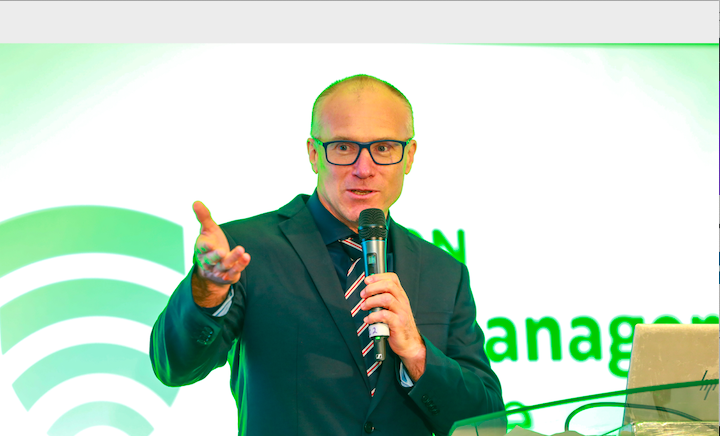 Mark Pfister, Haleon General Manager for sub-Saharan
Africa, at the launch in Nairobi.
Mark Pfister, Haleon General Manager for sub-Saharan
Africa, at the launch in Nairobi.Global health company Haleon has launched its Haleon Pain Management Institute (HPMI) in Kenya, aiming to improve how pain is understood and treated across the country and the wider Sub-Saharan region.
The institute will bring together health experts from multiple disciplines to address both the physical and emotional dimensions of pain, especially among vulnerable groups.
“What our research is showing is that pain is rarely just physiological. Those living with pain often feel isolated, misunderstood, and worse, unheard,” said Mark Pfister, Haleon General Manager for sub-Saharan Africa. “With a third of the world’s population in pain every day, we must devise strategies that create wider understanding of patients’ pain experience.”
Pfister said Kenya is a key focus for the company. “We are excited to be
launching the HPMI in Kenya, a key market for us in Africa and by extension,
Sub-Saharan Africa.”
The launch follows findings from Haleon’s 2023 Global Pain Index, which surveyed over 18,000 people in 18 countries, including more than 600 healthcare professionals. The data revealed that pain affects social and emotional well-being, with women and Gen Z reporting greater negative impact due to discrimination and exclusion.
“Africa has a very youthful population, and based on the Index’s findings, these young people, who are the engine of Africa’s economic future, will not be spared from the burden of pain,” Pfister said. “Haleon’s Pain Management Institute will be a key platform for Kenya’s health system, aiming to support capacity building, break stigma, and improve patient outcomes.”
The Institute’s mission is to empower 20 million people with better pain management support by 2030. Its strategy focuses on three pillars: boosting patient knowledge, advancing scientific research, and equipping healthcare workers with practical skills.
“Pain can be an isolating experience, yet no one should tackle pain alone,” said Enid Moraa (pictured), Haleon’s head of expert for Sub-Saharan Africa. “That’s why the Institute is committed to ensuring patients are heard, HCPs are supported, and that no one feels alone in their pain.”
Across Kenya, demand for chronic pain treatment is rising, with the market expected to grow from $52 million in 2022 to $89 million by 2030.
To mark the launch last week, Haleon held a webinar titled “Pain as an Accelerator of Aging,” exploring the long-term effects of chronic pain. Kenya joins the UAE, Pakistan, and Saudi Arabia as hosts of the new institute.
Haleon took over GSK Nairobi plant last year. The plant produces 28 million units of healthcare products annually, including well-known pain relief brands Panadol and Calpol.










